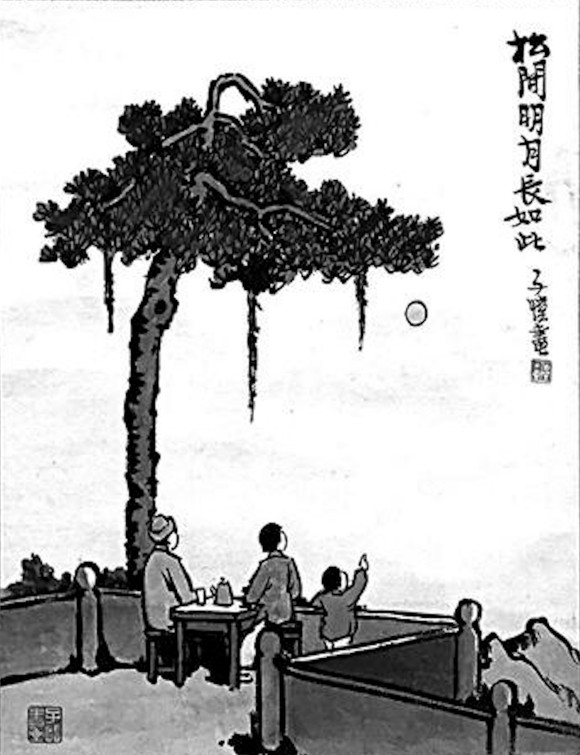In Cantonese, there is an interesting phrase, “Old Fung” (老奉), which means “taken for granted.” The word “old” could mean “old folk” but also “always,” where “fung” means “by majestic order” (奉旨). Figuratively, when we think that someone is taking things for granted, we ask if they think they are “majesties giving out majestic orders” that should be implemented without obstruction. Even though we may be willing to help these ungrateful people initially, if we do not receive appreciative responses and feel like they are taking things for granted, we naturally feel frustrated and reluctant to offer further kindness or support.
Gratitude is an important virtue in the Buddhist teaching. In the Kataññu Suttas (AN 2.31-32), gratitude is manifested as gratefulness and thankfulness. The Buddha taught that gratitude is a reflection of someone’s integrity and civility. The most immense and personal practice of gratitude should be expressed through filial piety, being mindful of all the wonderful conditions our parents make possible for our very existence, our upbringing, and every success. By the same token, we should extend our gratitude to our friends, teachers, community, and even the environment.

Painting by Feng Zikai (《松間明月長如此》,豐子愷). From sohu.com
It is difficult to develop a strong sense of gratitude without a deep level of mindfulness and wisdom of dependent arising. Needless to say, we are biologically, intellectually, and financially connected with our parents. We are interconnected with them as much as we are different from them. It is consistent with the Middle Way that we are neither the same nor different from our parents and ancestors. As much as each generation would like to identify themselves differently, they cannot be entirely isolated from their past and future.
One of the main reasons why people are ungrateful is ignorance. People who are ungrateful do not see the wisdom of dependent arising. Their narrow-minded and egoistic points of view erroneously lead them to think of themselves as special—they are the sole contributor of success and they are the only one making everything possible! They do not see the dependent nature of their relationships with others, with the community, and with the environment, not to mention their links with their predecessors and future generations. The American investor Warren Buffett explained with great humility and insight that his wealth is a tremendous win from the ovarian lottery, i.e. he was born in the right place, at the right time, to the right family.
Within an organization, people with gratitude recognize the contributions of all stakeholders, from senior management to entry-level staff members. They truly value the opinions of others. It is not that they are of low esteem, inexperience, or unconfident, but that they realize their perspective is not complete without insights from others. That is also why leaders and followers with gratitude are humble and open-minded, allowing for a low-risk environment and a growth mindset in resonance with the spirit of humble leadership.
Just as generosity invites us to let go of attachment to the “self,” gratitude reminds us to treasure all present and past conditions leading to the fruition of what we can enjoy in the present. Hence, Thanissaro Bhikkhu (2012) explained that the lessons of gratitude are multifold, but three of them are closely tied to the cultivation of insight: i) the efficacy of action; ii) the importance of intention; and iii) the existence of choice. In essence, to understand gratitude is to understand the principle of dependent arising and therefore the law of kamma. We should not take present and past conditions for granted because we can see that many of these conditions are the results of good deeds by many others making conscious choices. They are not random, effortless, nor thoughtless. Because these conscious decisions contribute to our success, we are inspired to “pay it forward,” to make an effort to repay the kindness and hope that these good deeds can be sustained for the benefit of others.
We can extend this deep understanding of dependent arising to not only our own notion of self-identity but also to our family, our workplace, and our community. Even better, we can let go of our attachment to “self” and appreciate our interconnectedness with the environment. When drinking water from a well, we are grateful for the resources available to us from nature and those who dug the well. If our predecessors polluted the well, we would not be able to use it. The same applies to culture, reputation, and other tangible or intangible assets. Interestingly, deep reflection also empowers us to let go of our sense of burden or guilt because both low and high self-esteem are built on a strong fixation with “self.” In the Buddhist teaching, the buddhas and the bodhisattvas have a vast and sustainable capacity to offer because they are no longer fixated on the notion of self. They are truly grateful because they truly understand dependent arising. They have no savior complex because there is no savior, nor those needing to be saved. They are grateful for those who need support for the cessation of suffering because there is no teacher without students and no doctor without patients.
After all, in this age of entitlement when everyone seems to desire more wealth and power than they deserve or are entitled to—even to the extent that we need to borrow from nature and future generations, we may benefit from the practice of gratitude so that we can contribute to a community that is truly grateful for what we have and pay it forward, instead of complaining about what we don’t have.
References
Thanissaro Bhikkhu (trans.). 2013. “Kataññu Suttas: Gratitude” AN 2.31-32. Access to Insight (BCBS Edition). http://www.accesstoinsight.org/tipitaka/an/an02/an02.031.than.html
Thanissaro Bhikkhu. 2012. “The Lessons of Gratitude.” Access to Insight (BCBS Edition). http://www.accesstoinsight.org/lib/authors/thanissaro/lessonsofgratitude.html
See more
We Love What Warren Buffett Says About Life, Luck, And Winning The ‘Ovarian Lottery’ (Business Insider)
How Humble Leadership Really Works (Harvard Business Review)












Awesome article, very enlightening and profound perspective on gratitude, thank you!